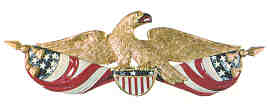| Year |
Event |
| 966 | Introduction of Christianity into Poland by first Polish prince Mieszko I, (first recorded ruler of Piast Dynasty) |
| 1000 | Congress of Gniezno: the Holy Roman Emperor Otto III visits Gniezno, the first capital of Poland and recognizes Boleslaw I, the Brave, as the sovereign of an independent state. Boleslaw unifies Poland as a Christian Kingdom |
| 1241 | A Mongol army raids Poland causing ruin and devastation. A Polish army gives battle at Legnica, is defeated, but the Mongols withdraw back to Asia. |
| 1364 | The Academy of Krakow, now called the Jagiellonian University, is founded by Casimir the Great. In time, Nicholas Copernicus will study there |
| 1388 | Jadwiga, Poland's Sovereign, marries Wladyslaw Jagiello, the Grand Duke of Lithuania. By this act she unites Poland and Lithuania under one crown. It becomes thereby one of the biggest countries in Europe, extending from the Baltic to the Black Sea. |
| 1410 | The Battle of Grunwald, the biggest of the Middle Ages, ends in victory of the combined Polish and Lithuanian forces led by Jagiello over the Teutonic Knights, a military German monastic order which established its own state and sought to expand it at the expense of its neighbors. |
| 1493 | The bicameral Polish Parliament is first convened; henceforth the King governs with the consent of the governed. |
| 1505 | The Nihil Novi statute is enacted stipulating that the King cannot decree any law without the prior approval by both chambers of Parliament, the Sejm and the Senate. |
| 1506 | Sigismund I becomes the King of Poland and Poland's Golden Age begins. Literature is written in Polish as well as Latin. |
| 1569 | The Union of Lublin: A formal joining of the nations of Poland and Lithuania in a federal commonwealth, with joint meeting of its parliaments but two armies and duplicate governmental structures. |
| 1573 | The Confederation of Warsaw passes an Act assuring to all the freedom to practice their religion without suffering discrimination or penalty. |
| 1683 | Jan Ill Sobieski routs the Turkish Army besieging of Vienna, stems the advance of the Ottoman Turks into the heart of Europe. |
| 1772 | The first partition of Poland: Russia, Prussia and Austria annex a significant portion of Poland, partitioning the territory between themselves |
| 1773 | The Commission for National Education is formed and undertakes a reform of Polish schools. It is the first institution of its kind in the world. |
| 1791 | On May 3rd , Poland's Sejm enacts the first written constitution in Europe, second only to the American one |
| 1793 | The second partition of Poland: the autocratic ruler of Russia, alarmed by Poland's democratic constitution, invades Poland and forces suspension of the constitution. More Polish territory is annexed by Russia and Prussia. Russian troops are stationed in Poland. |
| 1794 | Tadeusz Kosciuszko, hero of the American War of Independence, leads an uprising designed to cast the Russians out of Poland. Initially successful, it ends, six months later in defeat at the hand of the Russians. The third partition of Poland follows in 1795. All of its territory having been annexed, the state ceases to exist for the next 123 years. |
| 1918 | Poland regains independence after World War I. It is recognized under the terms of Versailles Treaty. Marshal Jozef Pilsudski becomes President. |
| 1920 | The Bolshevik army invades Poland in a drive to conquer Europe. It is defeated at Warsaw by Pilsudski. |
| 1939 | Hitler attacks Poland from the west on September 1 and World War II starts. On September 17, the Soviet Union invades Poland from the east. A partition of Poland follows on September 28. |
| 1943 | The Warsaw Ghetto Uprising. Following the deportation by the German Nazis of most of the Jews they had confined in a Ghetto to death camps, the survivors rise in an uprising seeking death with honor. The uprising lasts three weeks during which the Germans annihilate the Ghetto. |
| 1944 | The Warsaw Uprising: With the Soviet army in close proximity, the Underground Army liberates most of Warsaw. For the next 63 days it fights the Germans, only to eventually surrender. The Soviets to fail provide assistance or to intervene; most of Warsaw is destroyed. |
| 1945 | As a result of agreements reached by Churchill, Roosevelt and Stalin at Yalta, Poland is consigned to the "Soviet sphere of influence" and thereby to Communist rule. |
| 1978 | Karol Wojtyla is elected as the first Polish Pope, takes the name John Paul II |
| 1980 | The shipyard workers, led by the electrician Lech Walesa, in Gdansk organize "Solidarity" - the first independent workers' organization in a country under communist rule. Soon it has 10 million members |
| 1981 | Martial Law is declared by General W. Jaruzelski, Poland's communist ruler. "Solidarity" is outlawed. |
| 1983 | Lech Walesa receives the Nobel Peace Prize |
| 1989 | At the Round Table Talks the communist regime and Solidarity leaders arrive at a compromise regarding semi-free elections. The latter result in an overwhelming victory for Solidarity. The communists are forced to cede power to a democratic government. |
| 1997 | A new Constitution is approved in a nationwide referendum |
| 1999 | Poland become a member of NATO, the North Atlantic Treaty Organization |

